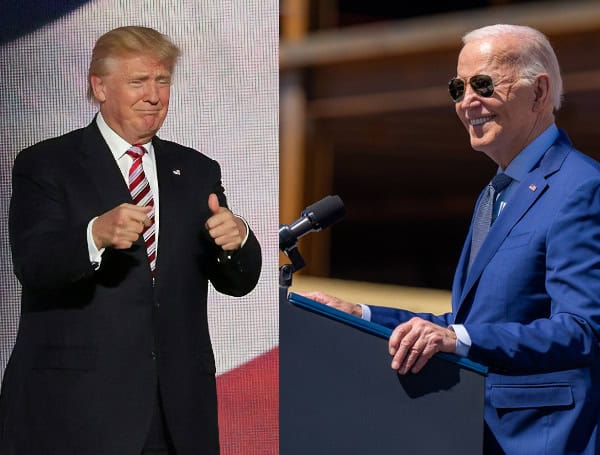
As the nation gears up for the first presidential debate between Joe Biden and Donald Trump on June 27th, a critical issue looms large yet remains unaddressed: the elder care crisis. With both candidates in their late 70s and early 80s, their silence on this matter is not just ironic, but deeply concerning for millions of Americans caught in the caregiving squeeze.
As we watch Biden and Trump prepare for their debate, one can’t help but wonder if they’ll address the elephant in the room – or rather, the aging parent in the nursing home. Both candidates, well into their golden years themselves, seem oddly reticent about a crisis that’s unfolding in living rooms and hospital rooms across America.
The irony is palpable. Here we have two men vying for the most powerful job in the world, both of whom are of an age where many of their contemporaries are receiving care rather than giving it. Yet, their campaigns have been conspicuously quiet on the subject of elder care. Is it because discussing it would shine an unwelcome spotlight on their own mortality? Or is it a reflection of a broader societal denial about the challenges of aging?
Read: Op-Ed: Lawsuit Abuse Continues To Be A Drag on Everyone’s Wallet In Florida And Tampa Bay
Let’s face it: America is graying, and fast. By 2030, one in five Americans will be of retirement age. The implications of this demographic shift are staggering, touching every aspect of our society from healthcare to the workforce. Yet, our political discourse seems stuck in a time warp, focusing on issues that, while important, fail to address this looming crisis.
Consider the plight of the sandwich generation – those caught between caring for aging parents and raising their own children. An estimated 29 million Americans are performing this high-wire act, juggling full-time jobs with the demands of eldercare. These unsung heroes are working a “second shift” that often stretches to 20 hours a week or more of unpaid care. They’re turning down promotions, scaling back careers, and in many cases, leaving the workforce entirely. The economic impact of this exodus is enormous, to say nothing of the emotional toll.
But it’s not just about the caregivers. It’s about the quality of life we offer to those who built this country. Do we want a society where the elderly are warehoused in understaffed facilities, or one where they can age with dignity, surrounded by loved ones who aren’t driven to exhaustion or financial ruin?
The solutions are out there. We need a national strategy that includes support for family caregivers, expanded professional training, and better funding for eldercare services. We need workplaces that recognize eldercare as a fact of life, offering the same flexibility and benefits we’ve come to expect for childcare. We need innovative technologies and services that can ease the burden on families while improving the quality of care.
But none of this will happen without leadership. We need our presidential candidates to do more than pay lip service to the issue. We need concrete plans, bold visions, and a commitment to making elder care a national priority.
The candidates’ silence on this issue speaks volumes. It suggests a disconnect from the daily struggles of millions of Americans. It implies that the needs of our elders – and those who care for them – are somehow less pressing than other campaign talking points.
But here’s the truth: Elder care is not a niche issue. It’s not a women’s issue, or a family issue, or a healthcare issue. It’s an everyone issue. Because if we’re lucky, we’ll all grow old. And if we’re truly fortunate, we’ll have someone to care for us when we do.
Read: Op-Ed: Biden Used The IRA To Put Green Energy Policy Above Seniors
In conclusion, the elder care crisis is not a future problem – it’s here, now, affecting millions of families across America. As we approach this pivotal election, we must demand that our leaders, regardless of party affiliation, address this silent epidemic with the urgency it deserves. It’s time for a national conversation on elder care that goes beyond partisan politics and speaks to our shared human experience. After all, caring for our elders is not just a policy issue – it’s a moral imperative that defines who we are as a society.
Neal K. Shah is the CEO of CareYaya Health Technologies, one of the fastest-growing elder care tech startups in America. He runs a social enterprise and applied research lab utilizing AI and human capital innovation to advance care equity through technology. Neal is a “Top Healthcare Voice” on LinkedIn with a 35k+ following, having led partnerships with top healthcare systems in America.
Help support the Tampa Free Press by making any small donation by clicking here.
Android Users, Click To Download The Tampa Free Press App And Never Miss A Story. Follow Us On Facebook and Twitter. Sign up for our free newsletter.
